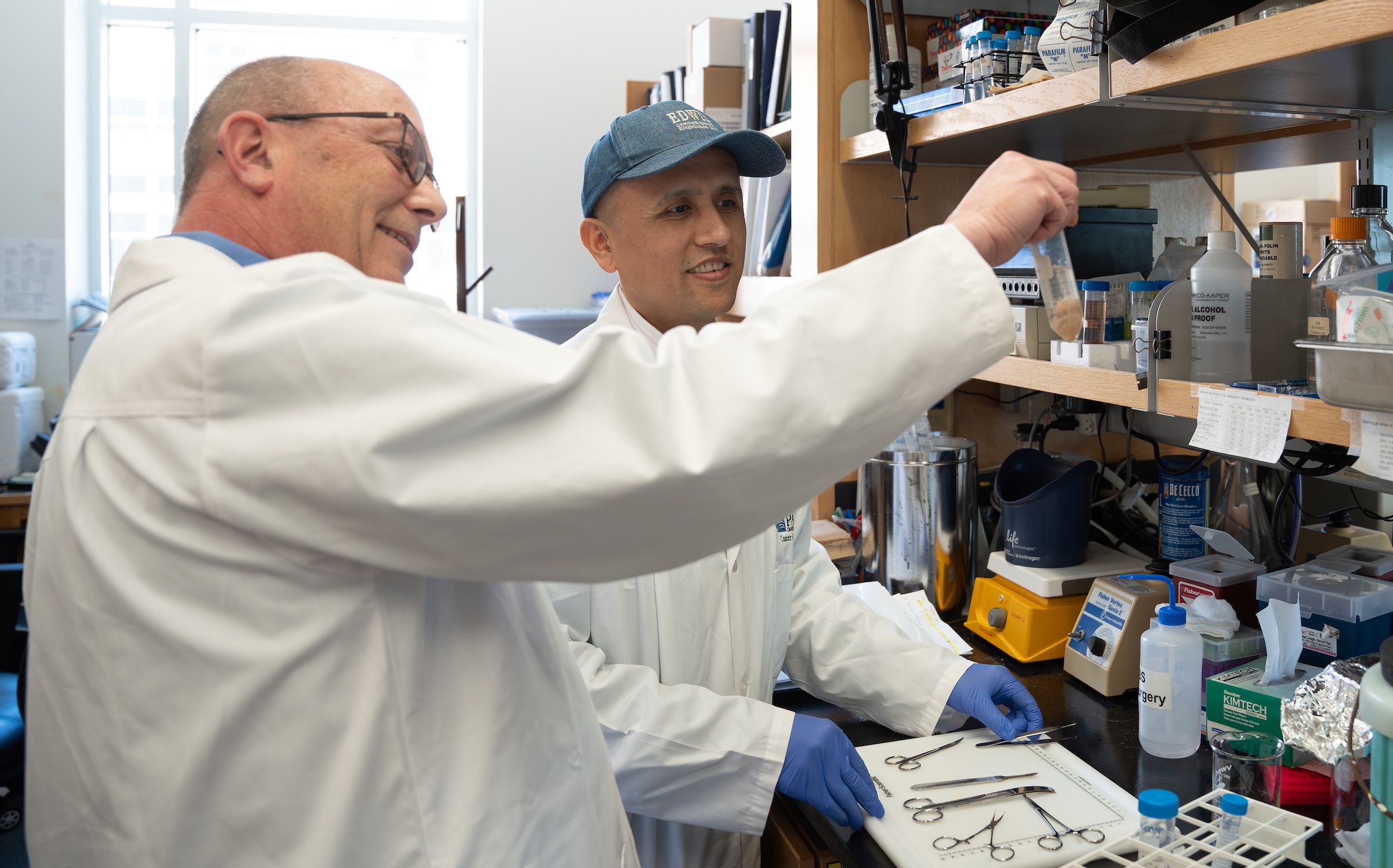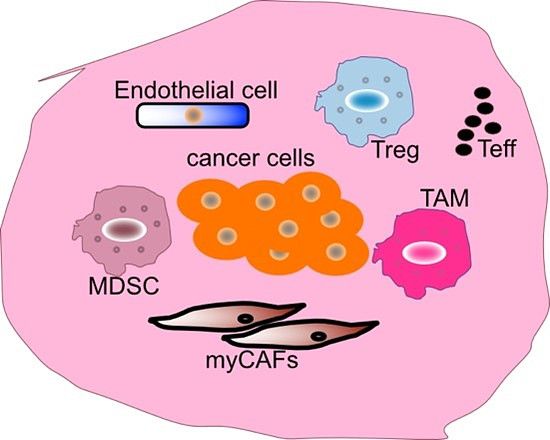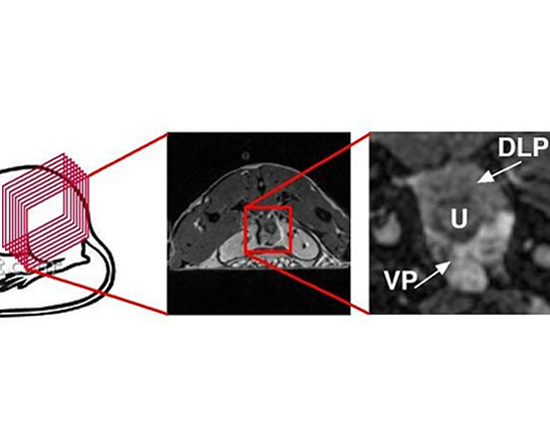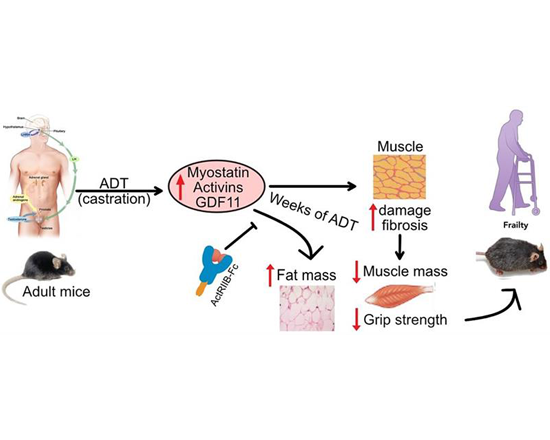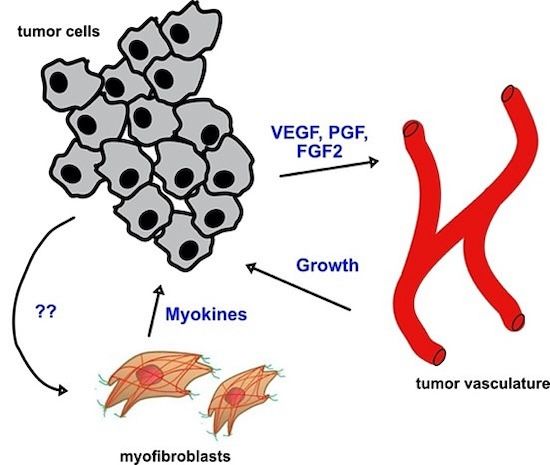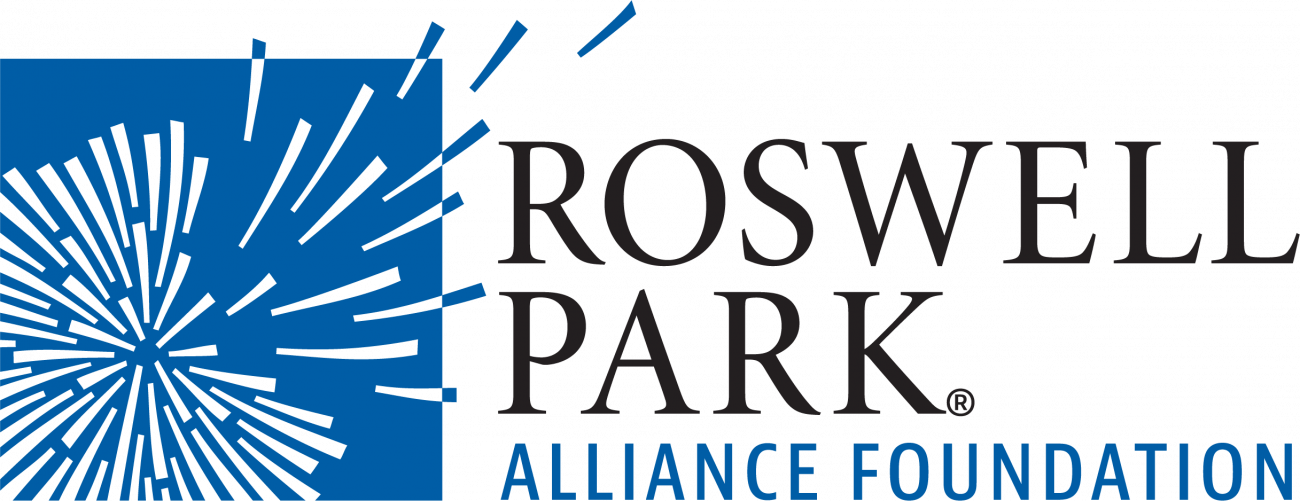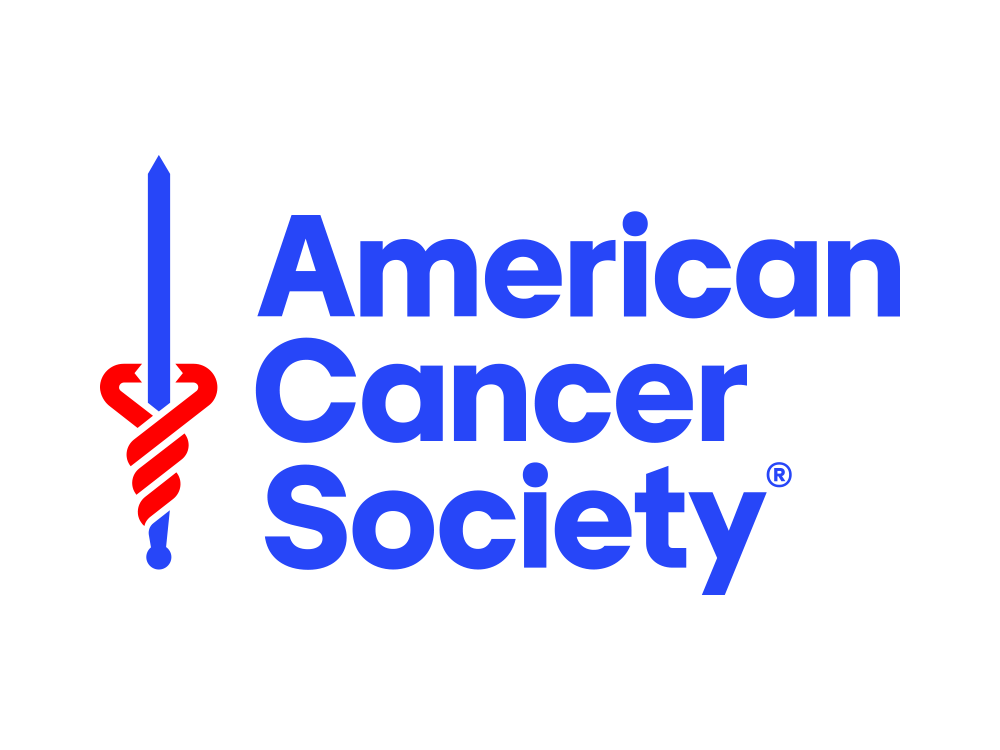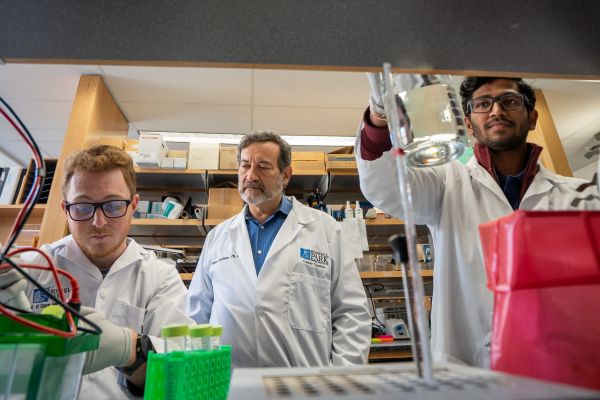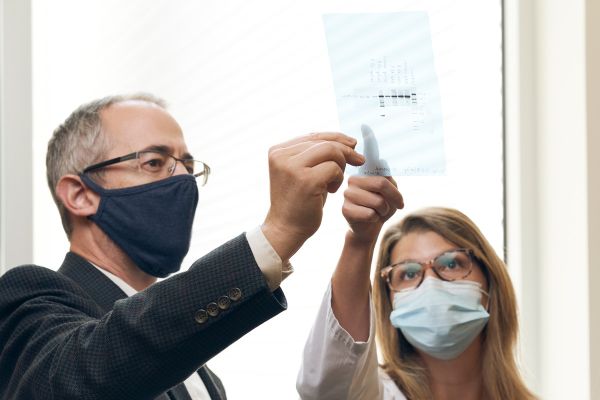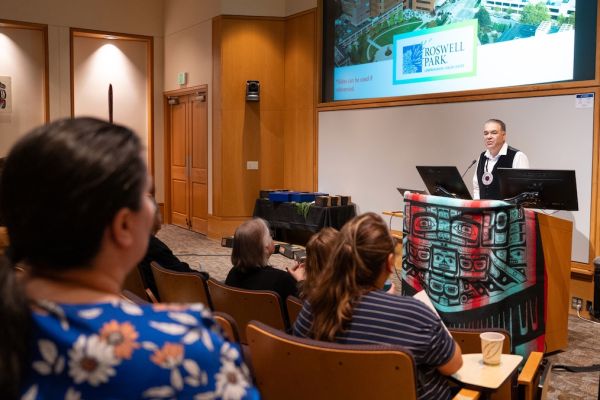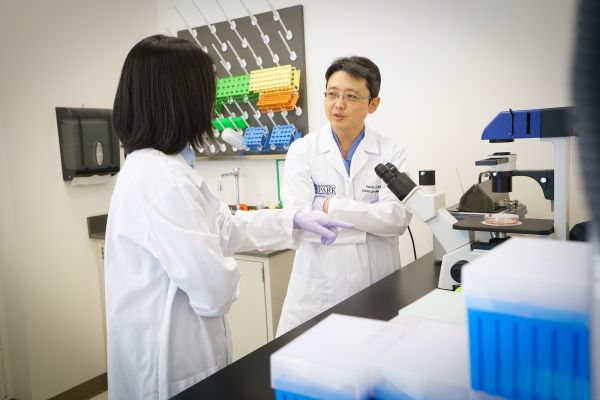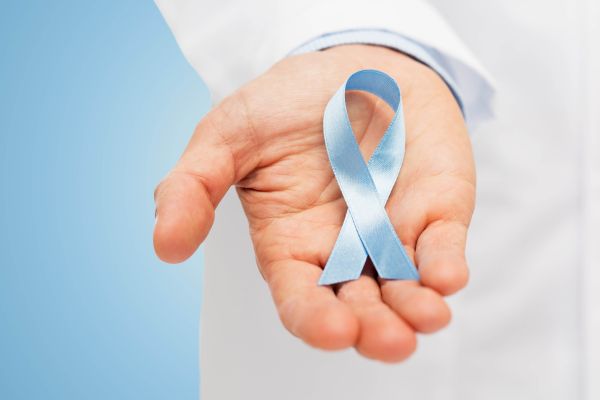Improving therapy for genitourinary disease
The laboratory’s objective is to improve therapy for genitourinary disease while equipping trainees with the knowledge and intellectual rigor to carry this research forward.
Specifically, we are investigating androgen deprivation therapy (ADT) signaling pathways in prostate cancer, how the prostate tumor immune microenvironment differs from normal and changes in response to ADT, and ADT side effects seen in prostate cancer patients.
Research directions
Strategies to increase prostate cancer response to immunotherapies
Immune directed therapies often nearly cure many cancers, but unfortunately few prostate tumors respond to these therapies, suggesting that prostate cancers are immune ‘cold’ refractory tumors. The lab is actively investigating the tumor immune microenvironment in both mouse models of prostate cancer and in human tumors, and how these are changed by androgen deprivation therapy.
Imaging prostate cancer growth and response to therapy
We developed and employ a variety of innovative imaging modalities to further mechanistic studies of autochthonous genetically engineered mouse prostate cancer models, as well as allogeneic and xenografted prostate cancer tumor models. Anatomic imaging includes high-frequency high-resolution ultrasound (HFUS) and high-resolution MR imaging. Functional imaging modalities detect changes in tumor response to potential therapies.
Strategy for preventing frailty-related side effects of androgen deprivation therapy in prostate cancer patients
We are dissecting the mechanism controlling a comorbidity of ADT, sarcopenia — the loss of muscle mass and strength — and the fat gain in patients with prostate cancer. Our goal is to identify strategies to minimize this therapy-induced side effect in order to improve prostate cancer patients’ quality of life. We discovered that the myokines GDF11 and myostatin signal muscle loss and fat gain during ADT.
Prostate cancer reprograms surrounding cells to secrete myokines that stimulate prostate tumor growth
In preliminary studies we have made the unexpected discovery that TGF-myokines are ectopically expressed in cancer-supporting cells (myofibroblasts) of prostate tumors in murine models of prostate cancer. Unexpectedly, TGF-myokine blockade damages tumor vasculature and shrinks tumors that are resistant to androgen blockade therapy. Regression of castration-recurrent murine prostate cancer tumors suggests that TGF-myokines are a novel target to control lethal prostate cancer.
Research funding
Targeting myCAF-driven castration-resistant prostate tumor growth
- Award: Idea Development Award
- Source: DoD Prostate Cancer Research Program
Mechanism of anti-SEMA4D therapy reversal of immunosuppression in the prostate tumor microenvironment
- Award: Exploration - Hypothesis Development Award
- Source: DoD Prostate Cancer Research Program
Are you a graduate student?
Graduate students from any PhD track admitted to the Roswell Park Cancer Sciences Graduate Program and University at Buffalo MD/PhD Program are highly encouraged to inquire for laboratory rotations. Master’s students from the Roswell Park Cancer Sciences Graduate Program and the University at Buffalo Genetics, Genomics, and Bioinformatics program are equally welcome to consider working in our lab. Email Dr. Nastiuk with your research interests.
Faculty affiliations
In the news
Connect with the Nastiuk Lab
Department of Cancer Genetics & Genomics
Roswell Park Comprehensive Cancer Center
Elm and Carlton Streets
Buffalo, NY 14263
